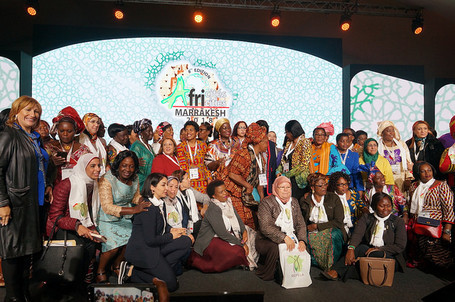At the end of the Local and Subnational Governments’ Africities Summit, the assembly released its communique which states as follows: We, Local and Subnational Governments of Africa gathered on the occasion of the 8th edition of the Africities Summit held in Marrakech, Morocco, from November 20 to November 24, 2018:

Based on the various international treaties guaranteeing the rights to persons in a situation of travel or migration, hereinafter referred to as migrants;
Recognizing that migration and the displacement of populations are historical and global phenomena that affect the entire planet, including Africa, where nearly 50 million people are considered as migrant or displaced;
Stressing the important role played by migration and displacements in the development of human societies in general, and of African societies in particular;
Recalling that the vast majority of migratory flows and population displacements in Africa occur within the continent; and that migrant populations often leave a local or subnational government to settle temporarily or permanently within another local or subnational government in Africa or outside Africa; ;
Aware of the fact that actions aimed at providing sustainable responses to the root causes of migration are generally the same as those aimed at developing initiatives that meet the needs of local populations, and should be anchored in the development of territories and be in line with the dynamics of regional integration;
Adopt the Charter of local and subnational governments in Africa on Migration which states that any local and subnational government that adheres to the Charter,
A) pledges to:
1) enforce the rights of migrants in its locality, to facilitate their peaceful integration into hosting communities, and to promote cohesion and conviviality between the hosting communities and the migrant populations;
2) draw the attention of National Governments to the fact that it is the right to come and go that stabilizes migratory flows, and therefore ask all National Governments to facilitate the provision of legal entry and circulation visas to migrant populations in order to dry up the source of illegal and irregular migrations;
3) help migrant populations in danger in the name of solidarity and fraternity due to all human beings without distinction;
4) support and promote the formation of associations of migrant population in its locality, with a view to facilitating dialogue and cooperation on migration issues with the local communities of origin and the communities of residence of migrant populations both in Africa and outside Africa ;
5) put the migrant populations in the spotlight during the celebration of the Africa Day on May 25th of each year, and of the International Migration Day on December 18th. These celebrations must, among other things, offer the opportunity for cultural, artistic or gastronomic exchanges between the migrant populations and the populations of the hosting communities;
6) cooperate with the local and subnational governments that welcome migrants from its locality both in Africa and outside Africa, in order to establish mutually beneficial links with the Diaspora, and to involve them in the efforts of growth and sustainable human development of their communities of origin;
7) join the African and global network of welcoming cities and territories, whose goals are to promote local policies that respect the principle of hospitality, the sharing of best practices in this area, the support of voluntary territories, and the partnership with all the associative actors engaged in supporting migrant populations;
8) contribute to popularize the campaign of ratification to the Charter of Local Governments of Africa on Migration, with the aim to have at least 5,000 additional African communities ratify the Charter by 2021.
B) Opposes firmly and unequivocally:
9) all forms of xenophobic violence and discrimination against migrants both on the Africa continent and in other regions. In this regard, any public official or citizen who makes racist or xenophobic statements against migrants or who is involved in smuggling and in human trafficking must immediately be brought before the competent authorities;
10) local, national or international policies that criminalize migration and criminalize the provision of assistance to migrant populations as, contrary to international humanitarian law;
11) the construction on its territory of detention camps to accommodate African migrant populations expelled from other parts of the world;
12) the treatment of the issue of migration and displaced populations from the sole security-based perspective, ignoring the benefits of migration for the dissemination of knowledge and technologies, its contribution to the support of the populations and to local development in the communities of origin, its invaluable role in promoting diversity and bringing people together, as well as developing mutual understanding in the hosting communities, and contributing to the creation of an atmosphere conducive to peace and harmony in the world;
13) the development assistance policies which condition the benefit of aid programs on the implementation of the return and readmission on their territory of the migrant populations expelled from other parts of the world;
14) the cooperation programs intended to tackle the root causes of migration not taking due account of the central role of local and subnational governments in their definition, and without the effective participation of these governments in their implementation.
Done at Marrakech on November 21, 2018.
Kindly follow us on twitter:@AfricanVoice2









